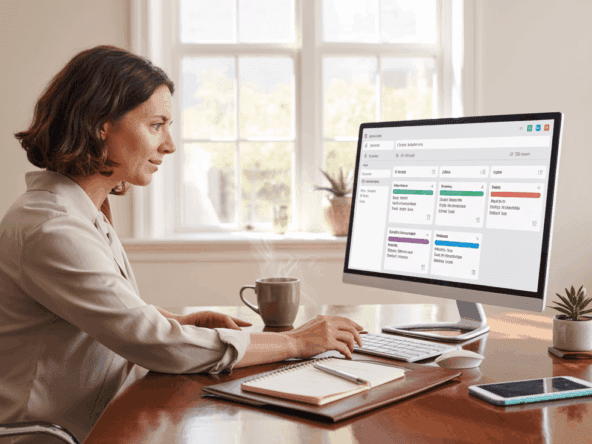In real estate, generating leads is only half the equation. The true competitive edge lies in the ability to consistently convert those leads into loyal, long-term clients. Whether those leads originate from online platforms, open houses, referrals, or social media, they represent potential opportunities—but without the right systems, those opportunities can easily be lost.
This guide explores strategic, actionable methods top-performing agents use to improve conversion rates and build stronger client relationships.
Understanding the Lead Conversion Process
Lead conversion is the bridge between first contact and a signed agreement. It’s the phase where trust is built, needs are clarified, and value is clearly demonstrated.
A one-size-fits-all follow-up strategy is rarely effective. Successful agents tailor their communication based on the lead’s background—whether they’re a first-time homebuyer seeking education and reassurance, or an investor focused on data and speed.
Recognizing a lead’s motivation, preferred communication style, and timeline allows for targeted, efficient outreach.
Speed and Consistency Drive Results
Studies show that response time plays a critical role in whether a lead engages or moves on. Agents who respond within minutes of an inquiry significantly improve their chances of initiating meaningful contact.
A quick message such as, “Hi, I just received your request—do you have a moment for a quick chat?” often opens the door to a conversation. Yet speed must be paired with consistency. Many agents stop after one or two attempts. A high-converting strategy involves a structured, multi-channel follow-up plan over several days—using calls, texts, and emails—while maintaining a professional, friendly tone.
Build Trust by Providing Immediate Value
Today’s clients have access to listings and data at their fingertips. What they seek from an agent is insight, clarity, and confidence.
Instead of just sharing listings, leading agents deliver contextual value—local market trends, school district info, and lifestyle-specific amenities. This positions the agent as a trusted advisor, not just another salesperson.
By offering guidance rather than pressure, agents foster relationships built on trust from the first interaction.
Use Technology and Automation to Scale Follow-Up
Modern CRMs (Customer Relationship Management systems) are essential tools for managing leads. They allow agents to automate follow-ups, track conversations, schedule tasks, and categorize contacts by readiness.
With CRM automation, agents can:
- Send personalized texts or emails in response to specific actions (e.g., downloading a home valuation)
- Set follow-up reminders and call tasks
- Keep leads from slipping through the cracks
Automation doesn’t eliminate the human touch—it ensures it happens consistently.
Qualify Leads Quickly and Effectively
Not every lead is ready—or motivated—to transact. Effective lead conversion starts with qualifying conversations.
Smart agents ask open-ended questions like:
- “What’s prompting your move?”
- “When are you hoping to be in your new home?”
- “Are you already working with a lender?”
This filters out casual browsers and highlights serious buyers or sellers, allowing agents to prioritize follow-up appropriately while nurturing cold leads over time.
Personalize the Experience for Maximum Impact
Personalization is a powerful conversion tool. Remembering key details—such as a client’s favorite neighborhood, their dog’s name, or their timeline—makes future communication feel more genuine.
Agents also use short video messages to add warmth and stand out in a crowded inbox. A 30-second “thank you” after a showing adds a human element and helps establish emotional rapport in a digital-first environment.
Track Results and Optimize the Process
High-performing agents treat lead conversion as a measurable process. Key metrics to monitor include:
- Lead response time
- Appointment-to-close ratio
- Source-specific conversion rates
By regularly reviewing performance, agents can refine scripts, update email templates, or adjust timing strategies to better align with audience behavior. For example, if leads from a certain platform convert poorly, that may signal a need for faster responses or more direct messaging.
Conclusion: Conversion is the Key to Long-Term Success
Lead conversion is a dynamic blend of timing, empathy, and strategic follow-up. By focusing on value, leveraging technology, qualifying effectively, and tracking performance, agents can turn cold inquiries into committed clients.
Next steps for agents:
- Audit your current lead follow-up process
- Set up automated responses for inbound leads
- Develop a personalized 10-day follow-up plan
- Track metrics and optimize based on real results
In today’s competitive market, those who master lead conversion don’t just grow—they scale sustainably.




